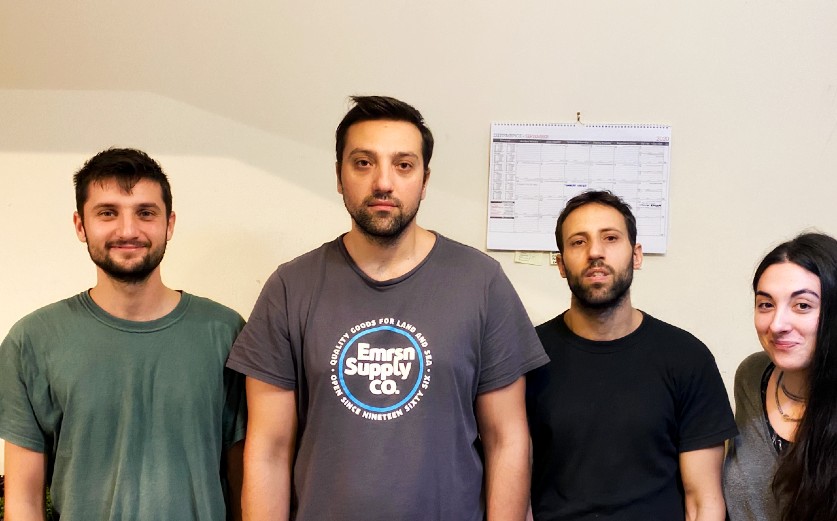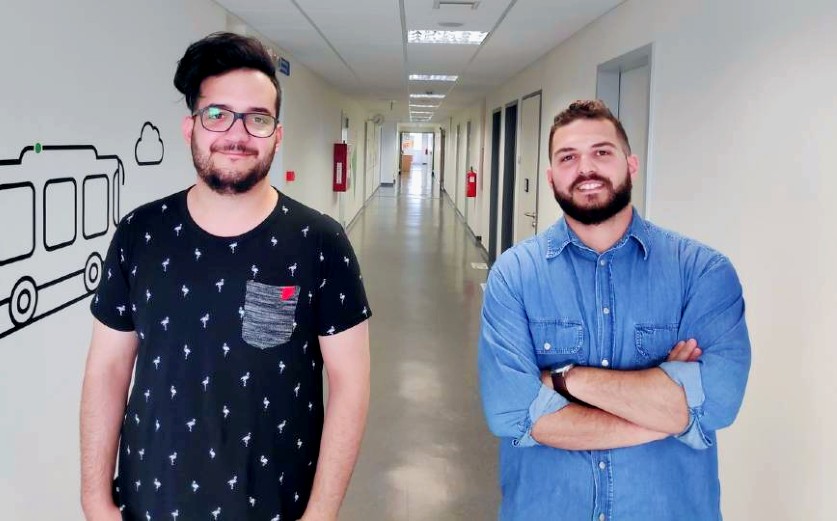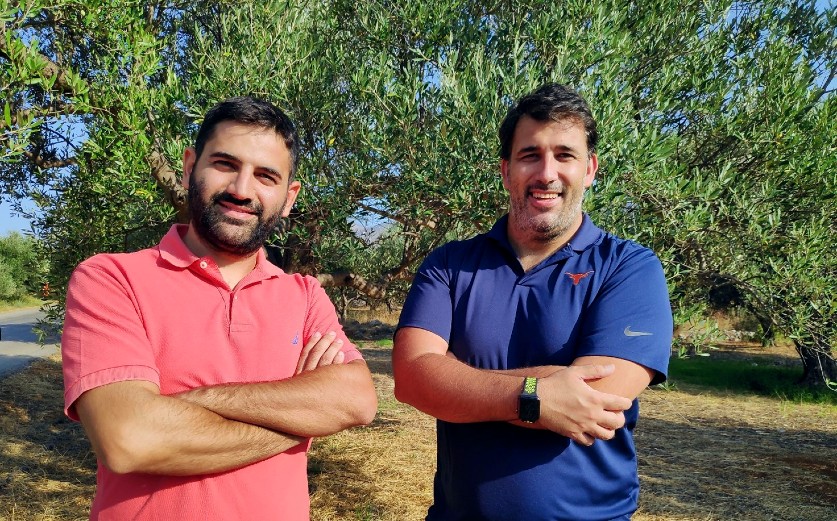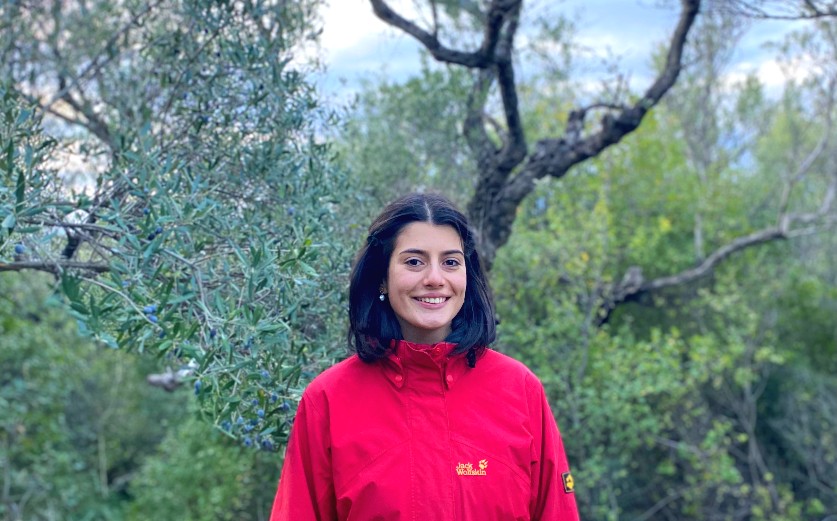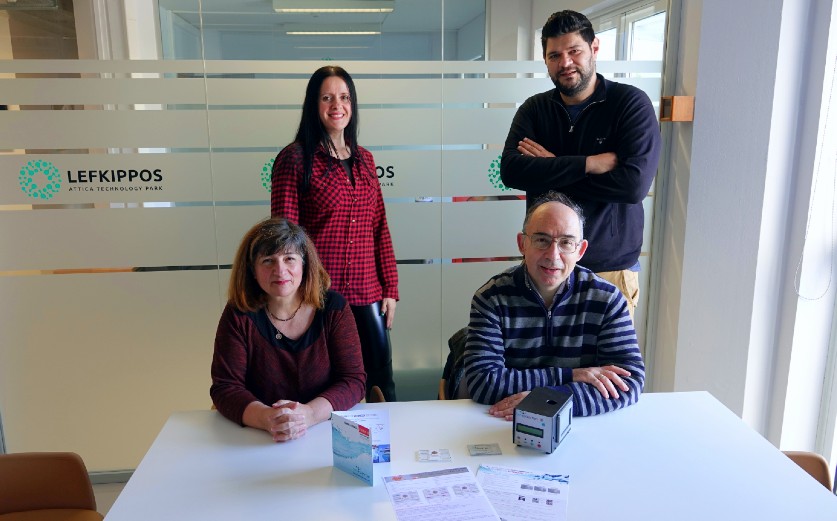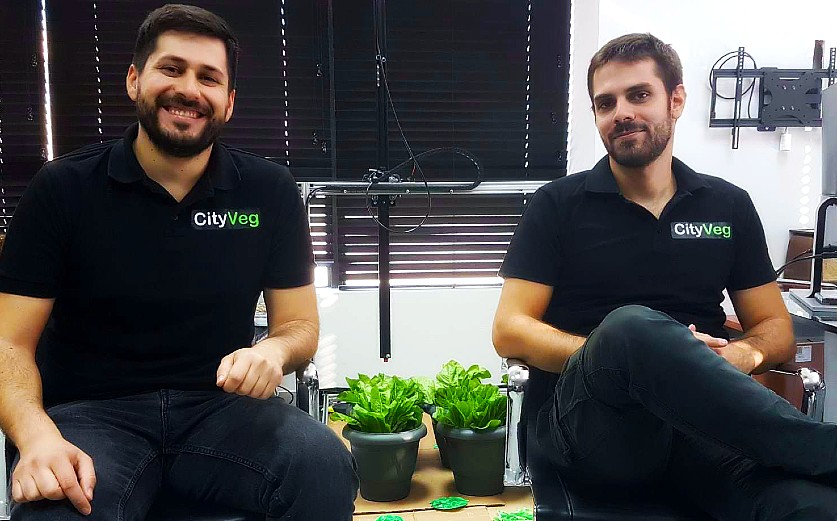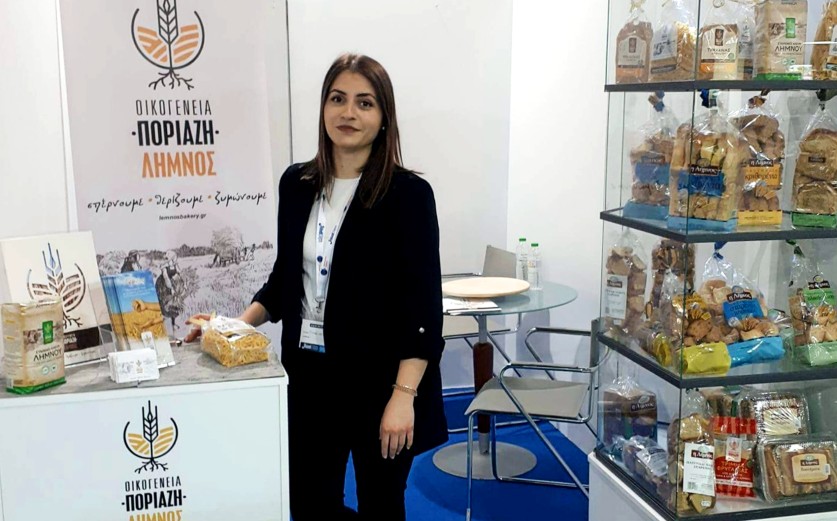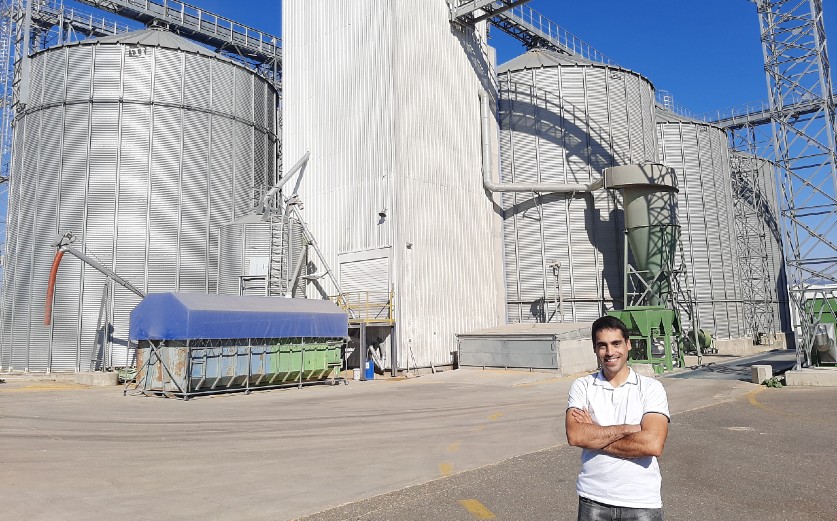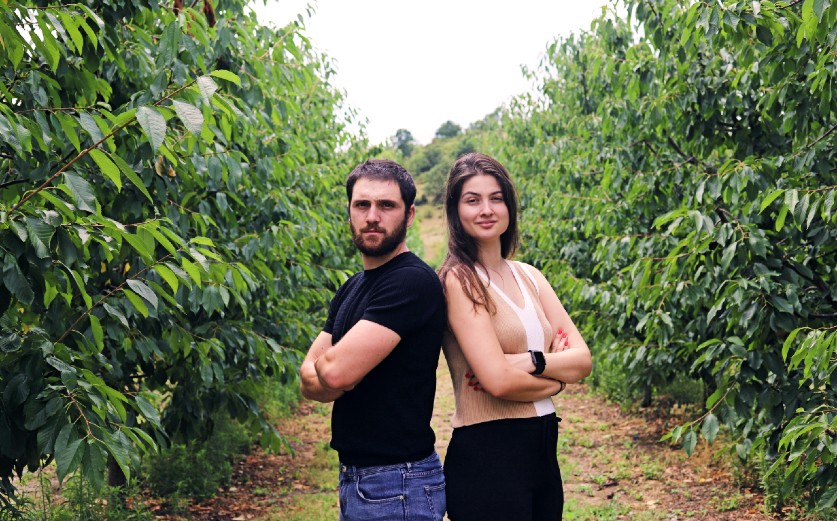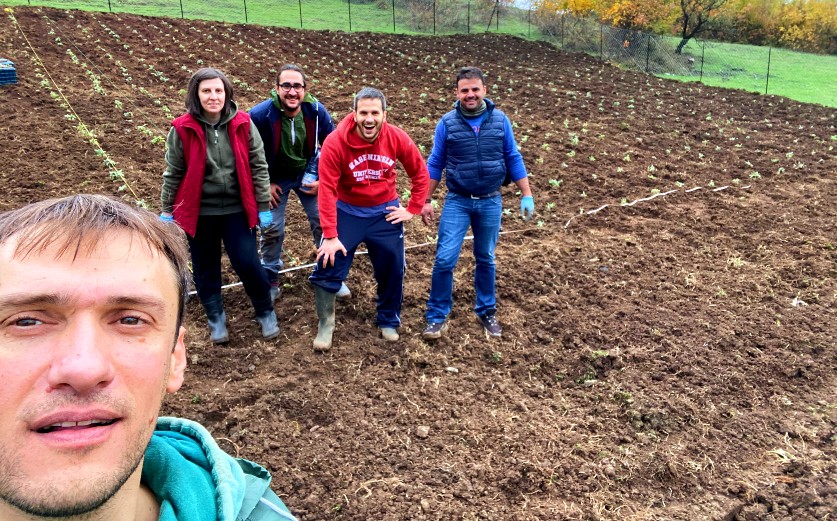HERBeat- The hydroponic farm that produces micro-vegetables and micro-herbs of high nutritional value
HERBeat is a very interesting company, a company that has managed to introduce in Greece a special and original product, the so-called microgreens. Enriching the gastronomic map of the country but also minimizing the environmental impact, increasing food safety, HERBeat introduces the concept of the hydroponic farm, producing small vegetables and micro-herbs of high nutritional value, thus changing the conventional way of cultivation.
The team managed to emerge as one of the four winners of the agrifood accelerator “Agroanelixis” of the organization “New Agriculture New Generation”, gaining funding and additional business support for one year.
Talking with Aris Petropoulos, one of the founding members of HERBeat, I was able to get to know the magical world of microgreens, which are a form of cultivation that is not yet widely known in Greece, as it has only appeared in recent years. In America but also in Scandinavia, small vegetables or micro-herbs seem to be a rising trend with people including them in their daily diet. But what exactly are microgreens after all?
As Aris explains, it is a cultivation of leafy vegetables and herbs as well as edible flowers from certain varieties which have been cultivated until their second stage of development, thus keeping a high number of phytovitamins and making them more nutritious. “The earlier the stage of cultivation, the more the nutritional properties of the vegetables,” says Aris. “Although in Greece the term sprouts have prevailed to describe microgreens, it is not a correct term. When we talk about sprouts we refer to crops that are at stage zero,” he adds.
Micro-herbs or micro-vegetables are usually eaten raw in salads and are cut just before eating. “There is a wide selection of flavors and varieties of micro-vegetables, which can accompany excellent meat or fish but also be consumed as salads separately,” says Aris.
Aris grew up with his brothers Vassilis Petropoulos and Panagiotis Petropoulos in Nea Makri, Attica. As the family had a small estate in the area, Aris has been involved with plants since he was a child as it seems to have been something that attracted him from his very first years. Thus, he chose to study Technologist-Agronomist at the University of Kalamata. As a student, he became particularly interested in vertical indoor crops and discovered ways and means by which they could be successfully applied.
At the same time, Aris’ brother, Vassilis Petropoulos, lived in Norway where he worked as a chef. There, he had the opportunity to get in touch with a unique product, the microgreens. As it was something that caught his attention, he worked for some time with a producer of microgreens in Norway, wanting to know everything about these special varieties. Vassilis brought Aris in contact with micro-herbs as he knew that it was something that would attract the attention of his brother, who had already gained practical experience working through his studies as an agronomist. Thus, in 2018, the HERBeat team began to form, which now consists of 5 people and which Aris characterizes as a family business, as it employs all three brothers, Aris, Vassilis and Panagiotis Petropoulos. The team is harmoniously complemented by Zakelina Roussou and Sofia Tsatova.
Aris, initially setting up a space that functioned as a cantilever, began to cultivate the first products which he then sampled and saw that the response was particularly positive. Thus, the sale of certain products began timidly. “We have seen that in recent years there is a flourishing of gastronomy in Greece. So, we thought that we could deal with premium items to serve the gastronomy industry but also to bring the world close to new and alternative edible crops, which offer high nutritional value “, says Aris.
The team uses the model of indoor cultivation as Aris tells me they all come from the region of Attica and do not have large areas where they could cultivate. So, they decided to turn to urban farming, utilizing a small area in Nea Makri where they have created a model hydroponic farm. “We could have created a greenhouse for example, but we chose to follow the specific cultivation model, which also offers a flexibility, especially for those who live in big cities as one does not need to have a piece of land to cultivate. Under the right conditions, he can even do it at home,” says Aris.
However, this method of cultivation has another very important benefit, that of reducing the environmental footprint. “Using, instead of soil, a high quality substrate, we do not burden the already burdened land while at the same time we produce products of high nutritional value, thus increasing food safety,” says Aris. This happens as the area in which the products are located is specially designed, observing all sanitary measures while at the same time, the microgreens do not come into contact with external factors and pollutants.
HERBeat is engaged in the cultivation of 20 to 30 types of micro-vegetables, depending on the season and the demand. The team places special emphasis on creating the appropriate hygienic environment for the cultivation of microgreens but also on the use of the latest technology to support the cultivation with the highest possible standards. Although in the beginning they started with micro- vegetables and micro-herbs, now they have expanded to the cultivation of edible flowers and ready-made preparations that include premium salads from baby vegetables such as red cabbage, mizuna (lettuce of Japanese origin), spinach and tat choi (Chinese cabbage) , species not widely traded.
Their participation in the Agrifood Accelerator “Agroanelixis”
Aris spoke very warmly about HERBeat’s participation in the agrifood accelerator “Agroanelixis” of the “New Agriculture New Generation” organization but also about the prizes that the team won, as it managed to be one of the four winners of the program. As he characteristically stated, after being informed about the program, they hurried to apply for participation as they considered it an opportunity for the team to develop and go one step further.
Through their 5-month participation in the business acceleration program “Agroanelixis”, the team feels that it has managed to gain know-how and valuable knowledge. As Aris says, “Through our participation in the program we were able to organize our team and delimit our goals and our next steps. We learned very interesting information about the market and the ways to promote our products “. At the same time, he adds that he considers that the program acted as a catalyst in the formation and securing of the company’s identity.
An important benefit for Aris was their contact with other groups that participated in the program. “We heard and saw very interesting ideas that excited us. It’s very important for all start-ups to be able to network and come together, through a well-organized learning environment,” he says. He also mentions the help that the team received from the specialized guidance received from the mentors of the program, saying that “Just the fact that you come in contact with so many well-known people in the field of agri-food and trade, offers significant supplies for the future. The “Agroanelixis” program is a unique opportunity for teams such as HERBeat that are active or want to be active in the agrifood industry, as it provides knowledge and opportunities that are otherwise extremely difficult to obtain. All the lessons and the advice we received through mentoring seemed useful to us and we continue to refer to them regularly “.
Microgreens at your table
Asking Aris about the next steps but also about their plans, he tells me that the group’s gaze remains on the indoor crops. Until now, due to the specificity of the product they cultivate, they may have collaborated only with restaurants and chefs, however, as they see that the demand is increasing, in their immediate plans is the expansion of HERBeat in the retail trade, creating e-shop from where anyone interested can make their purchase electronically.
At the same time, the team has started a cooperation with selected fruit shops in Athens while their goal is to discover new and original varieties, which to introduce in the Greek market. “Our goal is to gradually develop the part of direct communication with the consumer”, says Aris, “we have already started promoting the company through social media and we have developed a dynamic presence which is very encouraging for the future of the company “.
In conclusion, as Aris rightly pointed out in our discussion, microgreens may sound and look impressive in the context of high gastronomy, but one must not forget that in addition to their uniqueness and beauty, their consumption offers many nutritional benefits, rarely found. After all, it is no coincidence that Aris characterizes them as “nectar” of vegetables and edible flowers.
